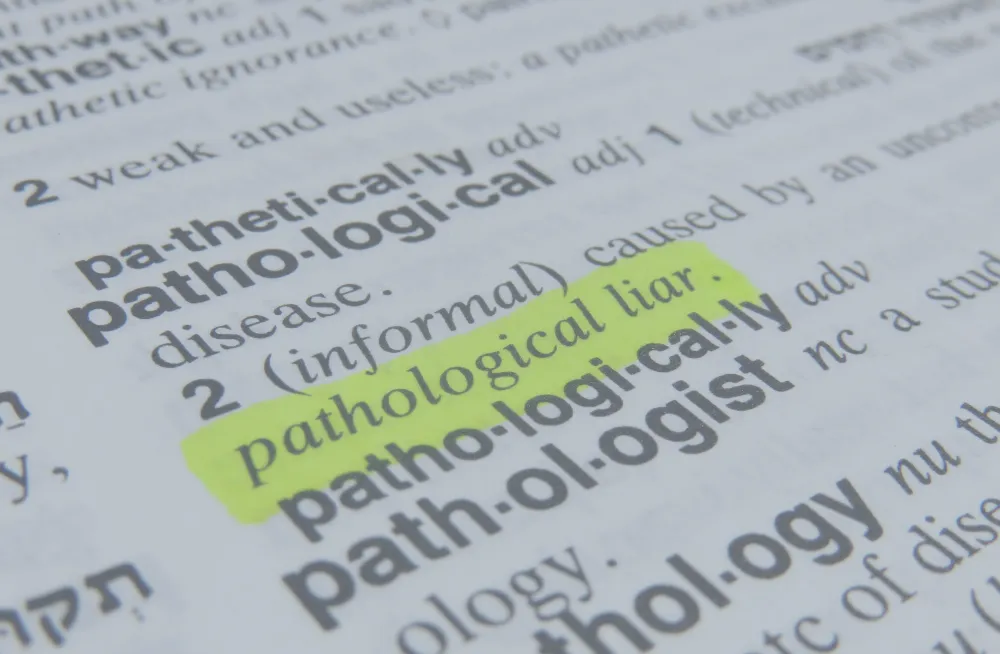Not Sure Counselling is for You? Debunking Common Myths About Mental Health
Many still believe that therapy or counselling is only necessary for those with severe mental illness or that you must be in the middle of a crisis before seeking help.
There’s also the misconception that talking about your problems will only make them worse, leading some to think it’s better to keep everything bottled up.
Additionally, some view asking for help as a sign of weakness. They might think that needing counselling means they’ve failed to manage their own life or that struggling on their own is somehow a badge of honour. They may hold the belief that needing support or showing emotions makes someone weak.
Others may fear that counsellors dictate solutions or impose their opinions or do not see the added benefit of seeking counselling compared to speaking to a friend.
These pervasive myths can create significant barriers to seeking support, preventing many from taking the first step toward growth and healing.
In reality, therapy, counselling or healing work aren't just for those with mental health challenges—it's a powerful tool for anyone looking to better understand themselves, thrive, and feel empowered.
In this blog, we’ll explore and debunk some of the most common myths about therapy and mental health, helping you see why therapy might be the right choice for you.
Not Sure Counselling is for You? Debunking Common Myths About Mental Health

| The Medical Model
Unfortunately, the medical model of therapy has played a significant role in perpetuating these stigmas.
The Pitfalls of Pathologising Natural Human Responses
Western therapeutic models, including the whole field of psychology, have often prioritised diagnosis as a primary means of understanding mental health, focusing primarily on the mind while overlooking the broader context of an individual's life, such as environmental, social or physiological factors.
As a result, natural physiological responses, such as anxiety, depression, or PTSD, which arise from the dysregulation of the nervous system, have been pathologised. This means that instead of being recognised as normal reactions to stress, trauma, or environmental factors, these responses are labelled as 'disorders'.
This framework can lead individuals to believe that something is inherently wrong with them—that they are the "problem." It overlooks the fact that these reactions are often the body’s way of coping with overwhelming or prolonged stress and fails to consider the broader social circumstances in creating these struggles.
In many cases, the solution offered is medication, which, while sometimes necessary, often acts as a temporary fix, neglecting the need for systemic changes that promote overall well-being.

The Therapist as the Authority
This creation of the "therapist versus the disorder" dynamic reinforces a hierarchical relationship where therapists are viewed as the ultimate authorities on mental health, often leading clients to feel that they lack agency in their own healing process.
Historically, approaches like psychoanalysis, famously associated with Freud, have contributed to this perception, placing therapists on a pedestal and positioning them as the sole experts in someone else's life.
This not only disempowers individuals by reinforcing the idea that healing is something that exists outside of themselves but also cultivates a sense of dependency, leading clients to believe they must rely entirely on their therapist for guidance and solutions.
In this context, comments like “just get over it” or suggestions that their feelings are imagined can lead people to mistrust their own feelings and instincts, creating a profound disconnect. This reinforces the idea that they’re not the experts on their own lives, further distancing them from their own experiences and insights.
This dynamic ultimately undermines the potential for personal growth and self-discovery, leaving individuals feeling paternalised and alienated from their own healing process.

The Mind-Body Divide
Traditional therapy models have also tended to separate the mind and body, treating the human body as little more than a machine. Complex issues have been oversimplified as mere chemical imbalances, leading to individuals being viewed in isolation without considering the broader environmental factors that contribute to their well-being.
Our mind is embodied; we do not exist separately from our bodies.
For example, our emotions are intimately tied to internal changes in the viscera, gut, skin, and endocrine system, known as interoceptive sensing.
For example, the state of our autonomic nervous system (ANS)—whether it is activated in a fight, flight, or freeze response—greatly impacts our thoughts and emotions. When our ANS is in a heightened state of arousal due to stress or trauma, it can lead to feelings of anxiety or fear. Conversely, a regulated ANS can foster feelings of calm and safety, allowing for clearer thinking and emotional resilience.
While the brain undoubtedly plays a critical role in our mental health, this reductionist approach can hinder people from achieving the results they desire, often leaving them stuck for years with little to no change.
The Discreditation of Alternative Healing Methods
Moreover, the Western model of therapy has often discredited alternative healing practices, such as Indigenous traditions and Eastern modalities, positioning itself as "superior."
In contrast, these ancient practices have long recognised the vital connection between mind and body, emphasising the significance of energy systems like chi and the importance of spiritual aspects in healing.
By excluding these holistic approaches, the Western framework overlooks the rich wisdom these traditions offer, particularly in understanding the deep interconnections between mental, emotional, and physical well-being.
The Impact of Stigma on Healing
Due to the limitations of the medical model of therapy, many individuals find themselves feeling pathologised, unvalidated, unheard, and unfulfilled. This experience often leads them to question whether traditional therapy can truly provide the insights and solutions they seek.
Such experiences have also permeated societal beliefs, fostering the notion that seeking help is a sign of weakness and contributing to feelings of shame or inadequacy.
This internalised stigma can deter individuals from pursuing therapy, leaving them isolated in their struggles.
At Reconnected Self, we strive to debunk these myths and empower individuals by providing them with the knowledge and tools they need to reclaim their agency in the healing process.
| The Changing Face of Therapy
Fortunately, we’re seeing a refreshing shift in the therapeutic landscape thanks to person-centred approaches, the understanding that many struggles are socially constructed and ground-breaking advances in neuroscience. While it might take some time for all institutions to catch up, this transition is definitely occurring.
I feel a deep calling to support this shift and illuminate what healing and therapy are really about, cutting through layers of conditioning about what it is to be human and have emotions.
The Social Construction of Mental Health Challenges
Mental health challenges are more than just medical or psychological issues; they are also influenced by the societies and cultures in which we live.
For instance, consider a culture that highly values productivity and long working hours. In such a society, working harder might initially be seen as a sign of dedication and success. However, this cultural expectation can lead to widespread issues like burnout and feelings of guilt when individuals cannot meet these high standards. For example, if someone feels pressured to work overtime regularly, they might experience chronic stress, exhaustion, and a sense of inadequacy if they cannot keep up with the demands. This can contribute to mental health issues like anxiety or depression, but the root cause is a societal expectation that equates productivity with personal worth.
The idea of social construction means that what we consider "normal" or "abnormal" behaviour isn't just based on objective criteria—it's also shaped by the cultural and societal contexts we are part of.
This perspective helps shift the focus from viewing individuals as the problem to understanding how societal pressures and cultural norms influence mental health.
The Embrace of the Mind-Body Connection
One of the most significant shifts in the last decade is the recognition within Western science of the deeply interconnected nature of the body and mind.
For instance, research has demonstrated that certain areas of the brain, especially those involved in cognitive processing and language, can shut down following trauma. This understanding highlights how trauma affects not just our mental health but also our ability to communicate and process information.
Moreover, we now appreciate the crucial role of gut health in our mental processes. The gut-brain connection significantly influences our mood and decision-making, illustrating how our physical health directly impacts our emotional well-being.
Additionally, studies have mapped emotions to specific areas of the body, further emphasizing the importance of understanding the mind-body connection in the healing process.
This growing awareness has led us to understand that while conventional talk therapy has its merits, it often falls short in effectively addressing issues related to a dysregulated nervous system. Additionally, therapists who are not trained in somatic approaches may lack the necessary tools to help clients navigate these challenges.

The Emergence of Body Therapies
When working with individuals facing issues rooted in survival stress or gut imbalances, relying solely on traditional talk therapy can lead to stagnation. As Dr. Bessel van der Kolk, a prominent trauma therapist, highlights, effective healing of the nervous system requires modalities that engage the body—such as touch, movement, and breathing exercises.
These approaches help regulate the nervous system and facilitate a deeper processing of trauma that talk therapy alone may not achieve.
This underscores the importance of a holistic approach that considers the full spectrum of experiences—mental, emotional, physical, and spiritual. By embracing an integrative model, individuals are guided to reconnect with their bodies, fostering a more comprehensive healing process.

| My Takeaways and How I Work In My Practice
You Are The Expert
In my practice, we work together as partners on this journey. I embrace the principles of person-centred therapy, which dismantle power dynamics and position you as the expert in your own life.
This approach is rooted in collaborative relationships, empathy, and co-creation. Therapy is tailored to the unique needs, values, and preferences of the client rather than following a one-size-fits-all model.
There are no pedestals; I emphasise this from the outset. I see myself as a facilitator, working to give you the keys to clarity and understanding.
Strength-Based Focus
You are met in a safe, non-judgmental environment where your experiences are valued and respected. I don’t view you as a collection of symptoms and deficiencies; instead, I help you tap into your strengths and uncover and process the experiences that have shaped you today.
Counselling becomes an opportunity to learn healthier coping strategies, improve your relationships, and cultivate resilience. Together, we will work to redefine what seeking help means, transforming it into a journey of empowerment and self-discovery.
Integrative Healing
At Reconnected Self, the interconnectedness of mind and body informs our approach to healing, viewing each person as a whole and considering their nervous system, environment, and social factors.
We blend evidence-based practices with Eastern healing traditions to address the complex interplay of mind, body, and spirit, ensuring a complete approach to your healing journey.
Respect for Diversity
We honour and respect each individual’s unique values, beliefs, and backgrounds, including cultural, religious, and LGBTQ+ identities, as well as different abilities. We create a welcoming space where everyone can feel safe to express themselves and integrate their identity into their healing journey.
Embracing Your Healing Journey
In a world where misconceptions about therapy persist, it’s essential to recognise that seeking help is not only a way to work through your struggles but also a valuable resource for anyone looking to deepen their understanding of themselves, feel vibrant, live authentically and enhance their well-being.
Just as you would hire a trainer to strengthen your body, a therapist serves as a strong ally to navigate the ups and downs of daily life.
Working with a therapist is not about fixing but about expanding, returning home, and embracing the freedom to be your true self.
I hope this blog inspires you to take the first step toward helping yourself. Remember, acknowledging the need for support is a sign of strength, and you deserve to invest in your mental and emotional well-being.
As we wrap up this exploration of therapy and healing, I encourage you to take a moment to reflect.
What beliefs or fears might be standing in the way of your healing journey?
Feel free to comment below or DM me with your thoughts—I'm here to support you!
P.S: If the prospect of working together and feeling empowered resonates with you, I warmly invite you to take the next step and book a free 30-minute consultation with me HERE.
This session provides you with a unique opportunity to experience what it’s like to work together, to ask questions and see if we are a good fit for your journey.

